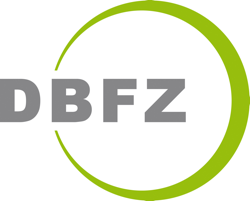Systemic Contribution of Biomass
"Wise use of the limited biomass resources for materials and energy is the prerequisite for shaping the upcoming energy and raw material turnaround towards rapid climate neutrality in a sustainable and cycle-oriented manner."
Dr. René Backes, Head of the research focus area
Objective
The research focus area is intended to contribute to the development of sustainable bioeconomy strategies at national and international level. Our focus is on the development and testing of decision-making bases for the development of sustainable, cycle-oriented utilisation options for materials and energy.
To this end, we determine and evaluate the biomass potentials for the production of materials and energy. For their use, we develop methods and indicators that describe the efficiency and sustainability of biomass use in different fields of application from an economic, ecological and technical perspective and derive recommendations for action and policy instruments, such as certification systems. In concrete example regions, we test the possibilities of resource mobilisation and the establishment of sustainable value chains. With transparent and freely accessible data systems as well as networks and platforms, we enable different decision-makers to access and exchange information.
Background
Future biomass use must meet numerous demands. These include food security, security of supply in a mix with other renewable energies, but also innovative products and markets within the framework of the bioeconomy as well as climate and environmental protection and, last but not least, the development of rural areas. This poses a major challenge in terms of implementation. Because at the same time the potential of biomass is limited, conflicts of objectives and limits of biomass use arise. In order to use biomass wisely in the context of a sustainable, cycle-oriented bioeconomy, various dimensions of sustainability must be considered and, if possible, operationalised in such a way that the upcoming decisions in the context of the energy and raw material turnaround towards net zero supply systems can be supported by the middle of the century.
Important reference projects (Selection)
- acatech - Energiesysteme der Zukunft (ESYS): Biomasse im Spannungsfeld zwischen Energie- und Klimapolitik: Strategien für eine nachhaltige Bioenergienutzung, Bundesministerium für Bildung und Forschung, 01.09.2017 - 31.08.2018
- OpenGeoEdu – Offene Daten für Lehre und Forschung in raumbezogenen Studiengängen; Teilvorhaben e-Learning: Räumliche Verteilung von biogenen Ressourcen, Bundesministerium für Verkehr und digitale Infrastruktur/VdI/VDE/IT + TÜV Rheinland, 01.05.2017 - 30.04.2020 (FKZ: 19S2007D)
- MethBos2 – Bioenergy Component - Advisory for biomass potential map development in Bosnia and Herzegovina, GIZ, 05.09.2017 - 30.08.2018
- MoBiFuels - Analyse und Beseitigung von Markthemmnissen von technisch-modifizierten Bioenergieträgern, Bundesministerium für Wirtschaft und Energie/Projektträger Jülich, 01.11.2018-31.10.2021 (FKZ: 03KB136A)
- TATBIO – Technoökonomische Analyse und Transformationspfade des energetischen Biomassepotentials, Bundesministerium für Wirtschaft und Energie/Projektträger Jülich, 10.10.2017 - 31.01.2019 (FKZ: 03MAP362
Important reference publications (Selection)
- Thrän, D.; Lauer, M.; Dotzauer, M.; Kalcher, J.; Oehmichen, K.; Majer, S.; Millinger, M.; Jordan, M. Technoökonomische Analyse und Transformationspfade des energetischen Biomassepotentials (TATBIO): Endbericht zu FKZ 03MAP362 (2019). Leipzig: DBFZ.
- Dotzauer, M.; Oehmichen, K.; Thrän, D.; Weber, C. (2022). "Empirical greenhouse gas assessment for flexible bioenergy in interaction with the German power sector". Renewable Energy, Vol. 181, Nr. 3. S. 1100–1109. DOI: 10.1016/j.renene.2021.09.094. https://www.sciencedirect.com/science/article/pii/S0960148121014191?via%3Dihub
- Dotzauer, M.; Pfeiffer, D.; Lauer, M.; Pohl, M.; Mauky, E.; Bär, K.; Sonnleitner, M.; Zörner, W.; Hudde, J.; Schwarz, B.; Faßauer, B.; Dahmen, M.; Rieke, C.; Herbert, J.; Thrän, D. (2019). "How to measure flexibility: performance indicators for demand driven power generation from biogas plants". Renewable Energy (ISSN: 0960-1481), H. 134. S. 135-146. DOI: 10.1016/j.renene.2018.10.021.
- Schmid, C., Hahn, A., (2021): Potential CO2 utilisation in Germany: An analysis of theoretical CO2 demand by 2030. J. CO2 Util. 50 , art. 101580
- Szarka, N., Haufe, H., Lange, N., Schier, F., Weimar, H., Banse, M., Sturm, V., Dammer, L., Piotrowski, S., Thrän, D., (2021): Biomass flow in bioeconomy: Overview for Germany, Renew. Sust. Energ. Rev. 150 , art. 111449
- All in One: A Comprehensive Goal and Indicator System for Smart Bioenergy - Szarka - 2020 - Chemical Engineering & Technology - Wiley Online Library
- Brosowski, A., Bill, R., Thrän, D., (2020): Temporal and spatial availability of cereal straw in Germany—Case study: Biomethane for the transport sector. Energy Sustain. Soc. 10, art. 42
- Brosowski, A., Krause, T., Mantau, U., Mahro, B., Noke, A., Richter, F., Raussen, T., Bischof, R., Hering, T., Blanke, C., Müller, P., Thrän, D., (2019): How to measure the impact of biogenic residues, wastes and by-products: Development of a national resource monitoring based on the example of Germany. Biomass Bioenerg.127 , art. 105275
- Moosmann, D., Majer, S., Ugarte, S., Ladu, L., Wurster, S., Thrän, D., (2020):
Strengths and gaps of the EU frameworks for the sustainability assessment of bio-based products and bioenergy. Energy Sustain. Soc. 10 , art. 22 - Thrän, D., Bauschmann, M., Dahmen, N., Erlach, B., Heinbach, K., Hirschl, B., Hildebrand, J., Rau, I., Majer, S., Oehmichen, K., Schweizer-Ries, P., Hennig, C., (2020):
Bioenergy beyond the German “Energiewende”–Assessment framework for integrated bioenergy strategies. Biomass Bioenerg. 142 , art. 105769 - Thrän, D., Moesenfechtel, U., (Hrsg.) Das System Bioökonomie, Springer Spektrum, Berlin, Heidelberg, S. 311 – 319
- Pfeiffer, D., Thrän, D., (2018): One century of bioenergy in Germany: wildcard and advanced technology. Chem. Ing. Tech.90 (11), 1676 – 1698
- Oehmichen, K., Thrän, D., (2017):
Fostering renewable energy provision from manure in Germany – Where to implement GHG emission reduction incentives, Energy Policy 110 , 471 - 477
Next section: » Anaerobic processes



